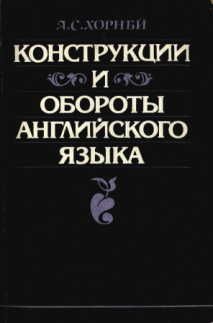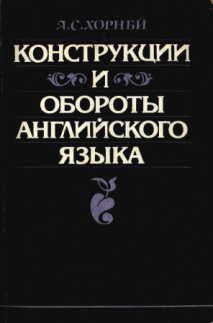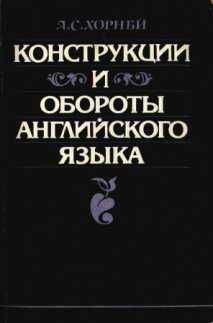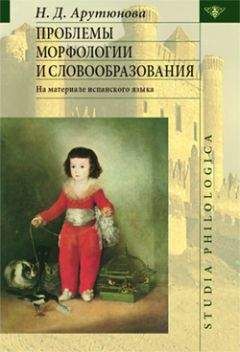Илья Франк - Английский язык с Робин Гудом
hall [hO:l], knee [ni:], front [frAnt]
Sir Richard of the Lee and Little John came into the hall. The knight went down on his knee in front of the abbot, and said: «Sir Abbot, I borrowed money from you, and today is the day that I must pay it back.»
«Have you brought the money (ты принес деньги)?» asked the abbot, and he didn't look pleased (спросил аббат, и он не выглядел довольным; to look — смотреть, глядеть; выглядеть, казаться; pleased — довольный).
Sir Richard said nothing (сэр Ричард ничего не сказал).
«No?» said the abbot, and he looked glad (сказал аббат, и /теперь/ он выглядел довольным). «Then why have you come (тогда зачем ты пришел)?»
pleased [pli:zd], nothing ['nATIN], glad [glxd]
«Have you brought the money?» asked the abbot, and he didn't look pleased.
Sir Richard said nothing.
«No?» said the abbot, and he looked glad. «Then why have you come?»
«Can I ask for more time to pay (могу ли я попросить отсрочку для выплаты: «больше времени, чтобы заплатить»; time — время)?» said the knight. «You say you are the servant of God (ты говоришь, что ты слуга Господа), and in God's name I ask it (и во имя Господа я прошу об этом; in the name of — во имя).»
«No,» said the abbot. «Your castle and lands are mine now (твой замок и земли теперь мои).»
Sir Richard asked the sheriff and the other lords to help him (сэр Ричард попросил шерифа и других феодалов помочь ему; lord — господин, владыка; феодальный сеньор).
«No,» they all said (сказали они все). «You have lost your castle and all your lands (ты потерял свой замок и все свои земли; to lose — не сохранять, терять /что-либо/; не сохранять, терять /что-либо/). Go away (уходи; to go away — уходить, уезжать).»
servant ['sq:v(q)nt], god [gOd], lost [lOst], away [q'weI]
«Can I ask for more time to pay?» said the knight. «You say you are the servant of God, and in God's name I ask it.»
«No,» said the abbot. «Your castle and lands are mine now.»
Sir Richard asked the sheriff and the other lords to help him.
«No,» they all said. «You have lost your castle and all your lands. Go away.»
The knight stood up (рыцарь встал /с колена/; to stand up — вставать). «I will pay you your money (я заплачу тебе деньги). And God will judge you because you wanted to take my castle and my lands (и Господь будет судить тебя за то, что ты хотел забрать мой замок и мои земли; to judge — судить, выносить приговор; because — потому что, так как).»
He spoke to Little John (он поговорил с Малышом Джоном), and John counted the four hundred pieces of gold, one at a time (и Джон отсчитал четыре сотни золотых монет, по одной /за раз/; at a time — за раз), on to the table in front of the abbot (/выкладывая их/ на стол перед аббатом): «One piece for the abbot, the servant of God (одна монета для аббата, слуги Господа). Two pieces for the abbot (две монеты для аббата). Three pieces for the abbot (три монеты для аббата). Four (четыре)...» Up to (вплоть до): «Four hundred pieces for the abbot, the servant of God (четыреста монет для аббата, слуги Господа).»
judge [dZAdZ], count [kaunt], table [teIbl]
The knight stood up. «I will pay you your money. And God will judge you because you wanted to take my castle and my lands.»
He spoke to Little John, and John counted the four hundred pieces of gold, one at a time, on to the table in front of the abbot: «One piece for the abbot, the servant of God. Two pieces for the abbot. Three pieces for the abbot. Four...» Up to: «Four hundred pieces for the abbot, the servant of God.»
Then the knight and Little John went away (после чего рыцарь и Малыш Джон ушли).
Sir Richard of the Lee went home in his new green clothes (сэр Ричард из Ли направился домой в своем новом зеленом костюме). His wife was waiting for him (его жена ожидала его; to wait for — ждать, выжидать).
«Have we lost everything (мы все потеряли)?» she asked.
new [nju:], wife [waIf], everything ['evrITIN]
Then the knight and Little John went away.
Sir Richard of the Lee went home in his new green clothes. His wife was waiting for him.
«Have we lost everything?» she asked.
«No,» he said. «The castle and my lands are ours (замок и мои земли наши). But we must thank Robin Hood for that (но мы должны благодарить Робина Гуда за это).»
The knight stayed in his castle and on his lands (рыцарь остался в своем замке и на своих землях; to stay — оставаться, не уходить), and he worked hard every day (и он много трудился каждый день; hard — сильно, интенсивно; настойчиво, упорно, усердно; to work hard — много работать). At last he had four hundred pieces of gold (наконец, у него было четыреста золотых монет). He said to his wife (он сказал своей жене), «Now I have the money that I borrowed from Robin Hood (теперь у меня есть деньги, которые я занимал у Робина Гуда). But I want to take him a present too (но я хочу отнести ему еще и подарок; too — также, тоже; к тому же, более того).»
ours ['auqz], hard [hQ:d], present [preznt]
«No,» he said. «The castle and my lands are ours. But we must thank Robin Hood for that.»
The knight stayed in his castle and on his lands, and he worked hard every day. At last he had four hundred pieces of gold. He said to his wife, «Now I have the money that I borrowed from Robin Hood. But I want to take him a present too.»
So Sir Richard made a hundred good bows (поэтому сэр Ричард изготовил сотню хороших луков). And his wife and her ladies made a hundred times twenty good arrows (а его жена и ее служанки изготовили две тысячи: «сто раз по двадцать» хороших стрел; lady — леди, дама; хозяйка; time — время; раз).
One year from the day the knight had seen Robin Hood (через год после того дня, когда рыцарь встретился с Робином Гудом; to see — видеть, глядеть; видаться, встречаться), he went to see him again (он поехал снова увидеться с ним). He took the four hundred pieces of gold (он взял /с собой/ четыреста золотых монет), and the bows and the arrows (луки и стрелы), and he went into the greenwood (и поехал в зеленый лес; greenwood — лиственный лес).
bow [bqu], ladies ['leIdIz], arrow ['xrqu]
So Sir Richard made a hundred good bows. And his wife and her ladies made a hundred times twenty good arrows.
One year from the day the knight had seen Robin Hood, he went to see him again. He took the four hundred pieces of gold, and the bows and the arrows, and he went into the greenwood.
Chapter 4
AT THE SHERIFF'S SERVICE
(На службе у шерифа; service — служба, занятие)
Meanwhile, Little John went to compete in a tournament with other men (а тем временем Малыш Джон отправился принять участие в турнире вместе с другими лучниками; to compete — состязаться, соперничать), for a gold and silver arrow (за стрелу из золота и серебра). He shot very well (он очень хорошо стрелял; to shoot — стрелять). His arrows all hit the mark (все его стрелы попали в цель; to hit — ударять; попадать в цель; mark — знак, метка; мишень, цель). The Sheriff of Nottingham gave him the gold and silver arrow (шериф Ноттингемский вручил ему стрелу из золота и серебра; to give — давать; вручать, передавать).
meanwhile ['mi:nwaIl], compete [kqm'pi:t], tournament ['tuqnqmqnt], silver ['sIlvq]
Meanwhile, Little John went to compete, in a tournament with other men, for a gold and silver arrow. He shot very well. His arrows all hit the mark. The Sheriff of Nottingham gave him the gold and silver arrow.
«This is the best bowman I ever saw (это самый лучший лучник, которого я когда-либо видел),» the sheriff thought (подумал шериф; to think — думать, мыслить).
«Young man (юноша: «молодой человек»),» he said to Little John (сказал он Малышу Джону), «what is your name, and where are you from (как тебя зовут и откуда ты)?»
«Men call me Reynold Greenleaf (люди зовут меня Рейнольд Гринлиф; to call — кричать, окликать; звать, называть; green — зеленый; leaf — лист),» said Little John, «and I'm from Holderness (и я из Хольдернеса).»
best [best], bowman ['bqumqn], thought [TO:t], young [jAN], call [kO:l], Reynold ['renld]
«This is the best bowman I ever saw,» the sheriff thought. «Young man,» he said to Little John, «what is your name, and where are you from?»
«Men call me Reynold Greenleaf,» said Little John,«and I'm from Holderness.»
«Well, Reynold Greenleaf (что ж, Рейнольд Гринлиф),» said the proud sheriff (сказал гордый шериф), «will you be my man (будешь ли ты моим слугой; man — человек; слуга)? I will give you good food and clothes (я дам тебе хорошее пропитание и одежду; food — пища, питание, еда), a good horse (хорошего коня), and fifteen pieces of gold a year (и пятнадцать золотых монет в год).»
«I'm the servant of a good knight (я /и так/ слуга добропорядочного рыцаря; good — хороший; достойный, добропорядочный, добродетельный),» said Little John, «but if he says yes, I'll work for you (но если он согласится: «скажет "да"», я буду работать на тебя).»
proud [praud], good [gud], food [fu:d], work [wq:k]
«Well, Reynold Greenleaf,» said the proud sheriff, «will you be my man? I will give you good food and clothes, a good horse, and fifteen pieces of gold a year.»
«I'm the servant of a good knight,» said Little John, «but if he says yes, I'll work for you.»
Sir Richard was working in his castle and on his land (сэр Ричард трудился в своем замке и на своей земле), and he didn't need Little John (и Малыш Джон был ему не нужен). And Robin Hood laughed when John said (и Робин Гуд рассмеялся, когда Джон сказал): «I’ll be the worst servant the proud sheriff ever had (я буду самым плохим слугой, который когда-либо был у гордого шерифа).»
So Little John became the sheriff’s man (так Малыш Джон стал слугой шерифа).
castle [kQ:sl], worst [wq:st], became [bI'keIm]
Sir Richard was working in his castle and on his land, and he didn't need Little John. And Robin Hood laughed when John said: «I’ll be the worst servant the proud sheriff ever had.»
So Little John became the sheriff’s man.
One Wednesday, the sheriff went into Sherwood Forest to shoot deer (однажды в среду шериф отправился в Шервудский лес, чтобы подстрелить оленя; Sherwood Forest — Шервудский лес /старинный королевский лес в графстве Ноттингемшир; с ним связаны легенды о Робине Гуде/). He thought that «Reynold Greenleaf» was with his men (он думал, что "Рейнольд Гринлиф" был с его слугами), but Little John was in bed (но Малыш Джон был = лежал в постели).
After a time, Little John went to the kitchen (спустя некоторое время Малыш Джон отправился на кухню), took some food (взял /себе/ немного еды), and sat down to eat it (и уселся поесть: «чтобы съесть ее»; to sit down — садиться). The sheriffs cook found him there (там его и нашел повар шерифа; to find — находить, встречать, обнаруживать).
Wednesday ['wenzdI], Sherwood Forest ["Sq:wud'fOrIst], with [wID], little [lItl], kitchen ['kICIn], down [daun], cook [kuk], found [faund]
One Wednesday, the sheriff went into Sherwood Forest to shoot deer. He thought that «Reynold Greenleaf» was with his men, but Little John was in bed.
After a time, Little John went to the kitchen, took some food, and sat down to eat it. The sheriffs cook found him there.
The cook was a strong man, and afraid of nobody (повар был сильным мужчиной и никого не боялся; afraid — испуганный, напуганный, боящийся).




